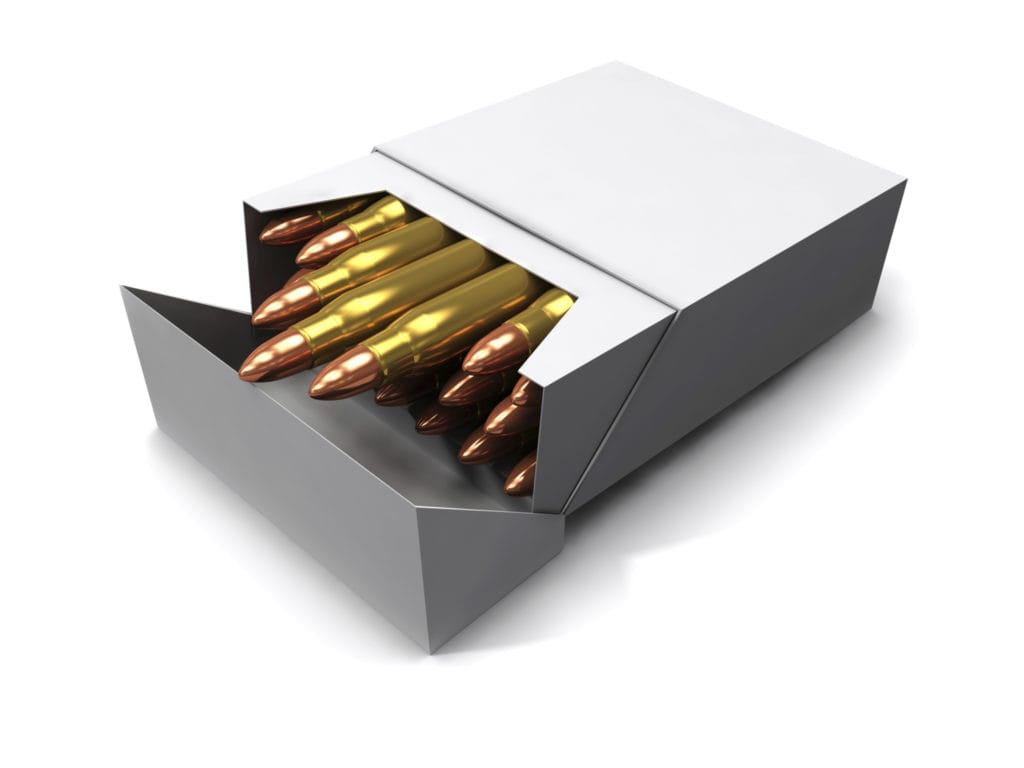Every year, 480,000 Americans die from smoking-related diseases. This presents quite a challenge for the tobacco industry, which must constantly recruit new generations of smokers to replace those whose habits have been interrupted by death. Overseas marketing efforts have bolstered industry profit margins, making up for some of this attrition. And tens of millions of Americans (about one in five adults) still engage in the grim reaper’s favorite pastime, and as long as that situation continues, U.S. tobacco companies will work hard to preserve their foothold in the domestic marketplace. One of the best sources for new smoking recruits has been the United States military. Over the last 75 years, soldiers, sailors, fliers and Marines have proven to be a receptive (some might say captive) audience for the pro-tobacco pitch. High stress, too much free time and the persistence of the Marlboro Man cultural stereotype have helped keep smoking rates high among this demographic group. Broken down by age groups, veterans and currently deployed personnel are 20 percent to 50 percent more likely to smoke cigarettes than those who have never served in the military, and this pattern has held true from the World War II era up through the present day. Up until 1975, cigarettes were given out for free as military rations. In response to rising health concerns, this practice was discontinued, but the tobacco companies found a way around that inconvenience by offering their products for sale on bases, ships and in war zones at highly discounted prices. Thanks in part to this clever practice, the culture of smoking has remained entrenched in the Armed Forces even as smoking in general has fallen into disrepute.
Congress Thwarts Attempts to Cut Smoking in Military
But what is really surprising is the consistent support the tobacco industry has gotten from Congress. At various times, leaders in all five branches of the military have attempted to either raise prices on tobacco products or ban them outright. But congressional representatives, working primarily through the House Armed Services Committee, have stepped in to halt these efforts every time. Representatives from tobacco growing states, as well as a few other tobacco lobby favorites, have tried to portray their obstructionism as a principled stand in favor of freedom of choice. Such claims deserve to be met with a degree of skepticism, but so far these arguments have apparently been persuasive, since Congress has repeatedly refused to support the military brass’ desire to get tough on smoking. Legislation prohibiting military leaders from taking action against cigarettes has been passed on multiple occasions. Just recently, when word got out that the Navy was considering banning tobacco on its vessels, an amendment was added to the 2015 National Defense Authorization Act forbidding military policies that “would limit, restrict, or ban the sale of any legal product category” presently available for sale on any military outpost or installation. This amendment was passed by a vote of 53-9 in the House Armed Services Committee and will now be sent to the Senate for approval (which is considered little more than a formality). Cost-benefit analysis has clearly shown that tobacco consumption is a loser for both the Pentagon as an institution and for individuals serving in uniform. A 1996 Inspector General’s report revealed that for every dollar the Department of Defense gained from tobacco sale commission, it lost $9 on expanded healthcare costs and reduced productivity. The Veterans Administration now spends more than $5 billion each year caring for ex-servicemen afflicted with various lung conditions, the vast majority of which can be traced to smoking habits acquired while in service. Disability benefits generally don’t cover health problems caused by smoking, so veterans forced to seek treatment for such conditions often have to pay out of pocket. According to Pentagon estimates, 175,000 currently active service members will die from smoking-related health conditions if they are not able to lick their toxic nicotine addictions.
A Clear and Present Danger
For both practical and humanitarian reasons, the military high command would like to expel tobacco products from the areas under its jurisdiction. Doing so would save money and save lives, and it would eliminate at least one clear and present danger that men and women in uniform currently face. Tradition, peer influence and the cheap and easy availability of tobacco products all help the military’s culture of smoking perpetuate itself, defying all logic and common sense in this presumably more enlightened age. When cigarettes were handed out like M&Ms during World War II and in Korea, the government’s laissez-faire attitude toward smoking could be dismissed as naiveté. But Congress does not have that excuse today when science, medicine and public health organizations are lined up squarely in opposition to the power of the tobacco industry lobby. By standing up for smoking, Congress has interfered with the autonomy of military leaders, arbitrarily restricting their ability to set sensible policy based on real-life needs and circumstances. Whether congressional inaction is based entirely on the influence of the tobacco lobby is impossible to say. But there is no doubt that if cigarettes in particular are ultimately banned from military venues, hundreds of thousands if not millions of lives will be saved. Smoking kills far more people than war these days, and those losses can only be classified as unnecessary and unacceptable.

